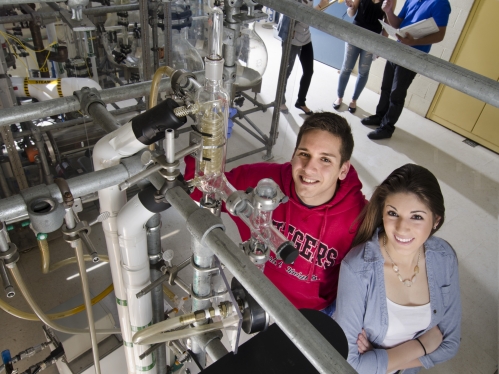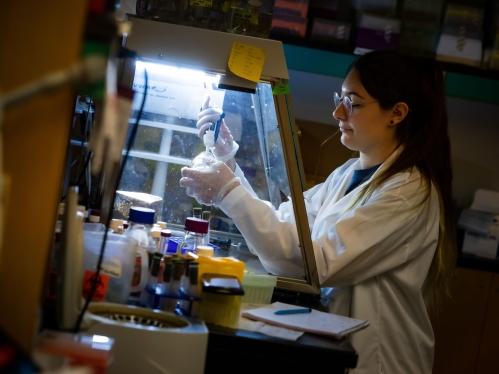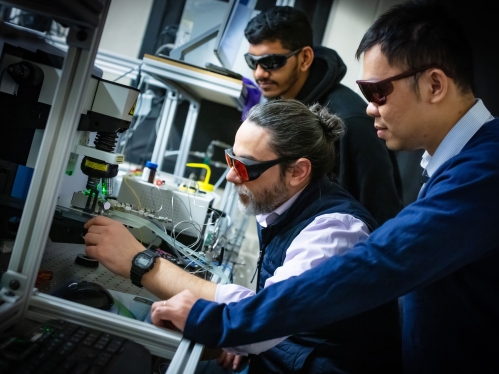First-year Engineering Curriculum
School of Engineering first and second year students follow a common core curriculum. Students declare their engineering major at the end of the first year.

Undergraduate Program
What is Chemical Engineering?
Chemical engineering is a diverse field with many career options. Do you want to develop drugs and new systems for their delivery? Are you interested in devising alternatives to fossil fuels? Chemical engineers leave their imprint on a broad array of industries applying principles of chemistry, biology, and physics. Rutgers Engineering students are actively recruited by healthcare, pharmaceutical, energy, environmental, automotive, and cosmetic and personal product companies.
Program Overview
Our comprehensive undergraduate program prepares engineers who are able to take the lead in devising innovative and practical solutions to chemical and biochemical problems across a range of industries. Courses in math, science, and engineering teach students to design and conduct experiments and analyze and interpret data. Students are exposed to multidisciplinary work representative of the field with an emphasize on teamwork and collaboration.
Academic Options
Biochemical engineering is an option to the chemical engineering course and offers students a deeper focus related to biological systems of living organisms. Biochemical engineers apply their skills in the food, agriculture, biotechnology, pharmaceutical, and water treatment industries.
Students can also select technical tracks in energy and sustainability and advanced and nano materials.

Beyond Academics
Hands-on Experience
Dedicated faculty members are engaged in cutting-edge research in the areas of pharmaceutical science and technology, life sciences engineering, including biotechnology, biomolecular engineering, tissue engineering and the design, manufacture and applications of nanostructured materials. Undergraduates have many opportunities for research under the guidance of a faculty adviser and many further that by doing field work or securing internships among some of leading companies around the nation.
Industry Connections
Internships, full-time during the summer or part-time during the semester, give students the opportunity to gain work experience in industry and to begin to make professional networking connections. Students who participate in the co-op program work full time for six months in a corporate engineering position and earn credits towards their degree. Students who participate in these programs are often offered full-time positions by their sponsoring companies after graduation.
We maintain close ties with leading corporations, including Dupont, ExxonMobil, Hess Corporation, and Merck, who support our undergraduate programs with research and on-site training opportunities and advisement.

Putting Your Degree to Work
Chemical engineers are among the most versatile of engineers because their training touches on many areas of engineering and the sciences. CBE graduates are finding success in careers that include:




Learn More
First-year Engineering Curriculum
School of Engineering first and second year students follow a common core curriculum. Students declare their engineering major at the end of the first year.
Chemical Engineering Curriculum
Chemical engineering students follow a curriculum as juniors and seniors based on their interest area of focus. This includes a biochemical option or specialized technical tracks in energy and sustainability and nano materials.
Contact Information
Undergraduate Director
Nina Shapley, PhD
Engineering Building, C-226
848-445-4951
nshapley@soe.rutgers.edu
Undergraduate Department Coordinator
Dana McCarthy
Engineering Building, C-226
848-445-2228